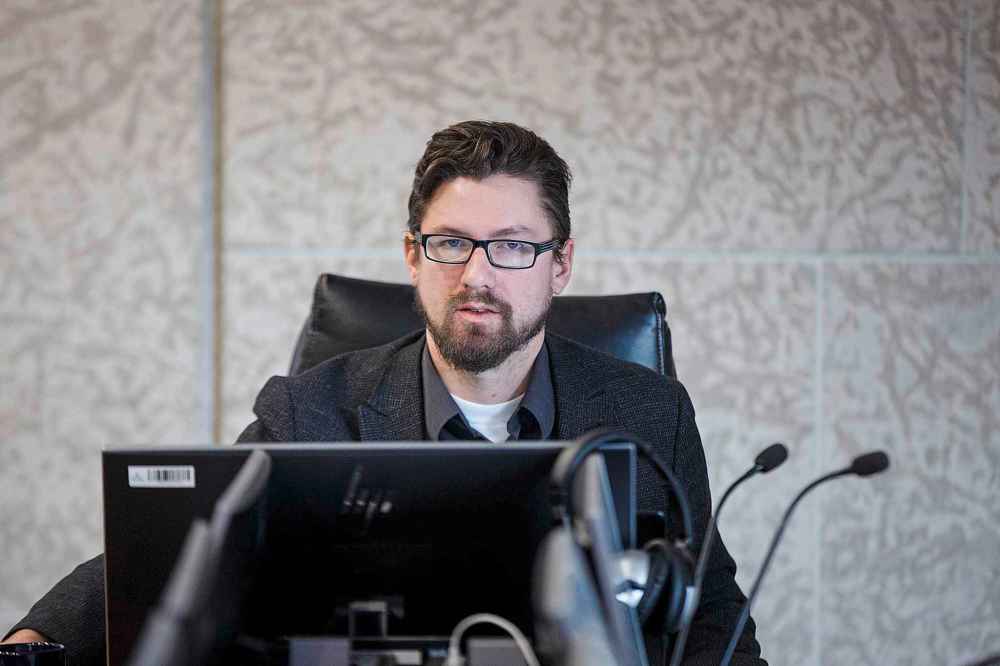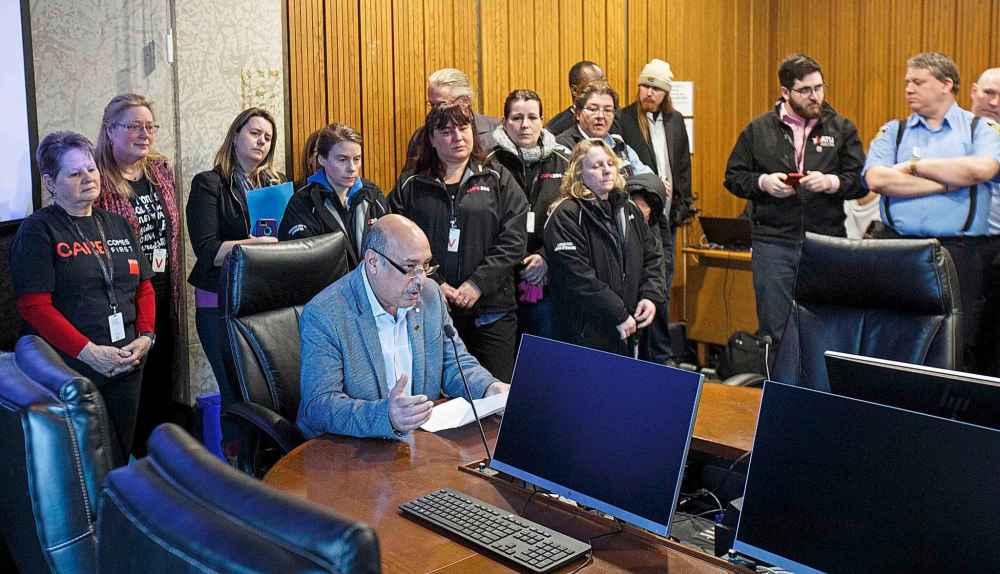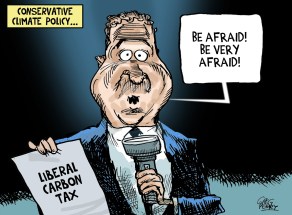City eyes expanded powers for Transit inspectors
Read this article for free:
or
Already have an account? Log in here »
To continue reading, please subscribe:
Monthly Digital Subscription
$0 for the first 4 weeks*
- Enjoy unlimited reading on winnipegfreepress.com
- Read the E-Edition, our digital replica newspaper
- Access News Break, our award-winning app
- Play interactive puzzles
*No charge for 4 weeks then price increases to the regular rate of $19.00 plus GST every four weeks. Offer available to new and qualified returning subscribers only. Cancel any time.
Monthly Digital Subscription
$4.75/week*
- Enjoy unlimited reading on winnipegfreepress.com
- Read the E-Edition, our digital replica newspaper
- Access News Break, our award-winning app
- Play interactive puzzles
*Billed as $19 plus GST every four weeks. Cancel any time.
To continue reading, please subscribe:
Add Free Press access to your Brandon Sun subscription for only an additional
$1 for the first 4 weeks*
*Your next subscription payment will increase by $1.00 and you will be charged $16.99 plus GST for four weeks. After four weeks, your payment will increase to $23.99 plus GST every four weeks.
Read unlimited articles for free today:
or
Already have an account? Log in here »
Hey there, time traveller!
This article was published 08/01/2019 (2532 days ago), so information in it may no longer be current.
Winnipeg Transit inspectors could soon be given the authority to get tough with troublesome riders.
Councillors on the public works committee Tuesday unanimously approved a motion directing the civic administration to prepare a report on the options to expand the authority and powers of the position.
While Winnipeg Transit only recently added a few inspectors as a safety initiative, there is a consensus among politicians and union officials they’re essentially powerless to deal with the type of passengers that pose the greatest threat to drivers and other riders.

“Inspectors, drivers, and the public are telling me that if inspectors can’t stop people, then you’re missing dealing with some of the more difficult situations,” said Coun. Matt Allard, chairman of the public works committee, who proposed the motion.
City of Winnipeg administration is expected to bring a report back to the committee in 180 days.
Allard (St. Boniface) said he wants inspectors to have the power to detain unruly passengers, adding it’s unclear what, if any, other special powers could be granted. He said the pending report will provide that information, along with how it can be achieved.
The idea is supported by the unions that represent Transit inspectors and drivers — but the local police union quickly raised a red flag.
Moe Sabourin, president of the Winnipeg Police Association, said when it comes to enforcing the criminal code, it’s a situation best left to trained officers.
“We don’t think it’s a good idea,” Sabourin said Tuesday. “It’s dangerous to put (Transit inspectors) in those positions, but it also places the drivers and other citizens in danger when there is an expectation that the inspectors will be able to respond the same manner as a police officer.”
However, a spokesman for the inspectors union said the public shouldn’t assume they would become Transit bouncers.
“Anything that provides a safer environment to a workplace for our members, and any of the Transit employees, as well as the general ridership, we are fundamentally in support of,” said Keith Bellamy, executive director of the Winnipeg Association of Public Service Officers. “It’s important to understand the details” of the pending report.
“I don’t think our members are seeking to become bouncers, and I certainly hope that’s not the understanding that everyone else has,” Bellamy said. “There are a number of ways people can engage in situations that might present unsafe environments.
“You can do that through crisis intervention, with words and actions that are safety-focused and supporting the de-escalation of incidents. That is primarily the way people like to proceed in those situations. Should things be escalating out of that scope, there is the ability for people to take actions. Right now, our members… are not able to effectively do that.”
Aleem Chaudhary, president of Amalgamated Transit Union Local 1505, said he thinks inspectors wouldn’t hesitate to wade into situations where simply talking isn’t working. He said when they now are called to a bus to deal with an unruly passenger, all they can do is try to reason with the individual.
“Inspectors can only ask them to stop, or ask them to get off the bus,” Chaudhary said. “Which can be done by anybody. Unfortunately, that’s what it is.”

Four point duty inspectors have been working in downtown Winnipeg for the past year, until recently, working from vehicles to respond to driver concerns.
They are part of a complement of 50 Transit inspectors — some operating from vehicles; others riding the buses — whose job is to deal with troublesome passengers, provide assistance to driers, and answer questions from the public.
“I don’t think our members are seeking to become bouncers, and I certainly hope that’s not the understanding that everyone else has.” – Keith Bellamy, executive director of the Winnipeg Association of Public Service Officers
Chaudhary said expanding the powers of the inspectors could become the first step in a long process to establishing a separate police authority — which Transit operators want. However, he cautioned that along with any expanded powers, the inspectors must also be given proper training and the equipment necessary to protect themselves.
Allard said Transit management and city council rejected placing Winnipeg police officers on buses for enhanced security, reasoning they could afford to hire more staff in the role of inspectors.
He conceded that, in the toughest situations, the inspectors are powerless to act.
“Ninety per cent of the time, the issues are handled (by the inspectors). But it’s those times they cannot be handled… that’s when the police need to be called — and that’s why we need to explore this new,” Allard said.
“We want to give those inspectors more power so they can better do their jobs.”
aldo.santin@freepress.mb.ca









